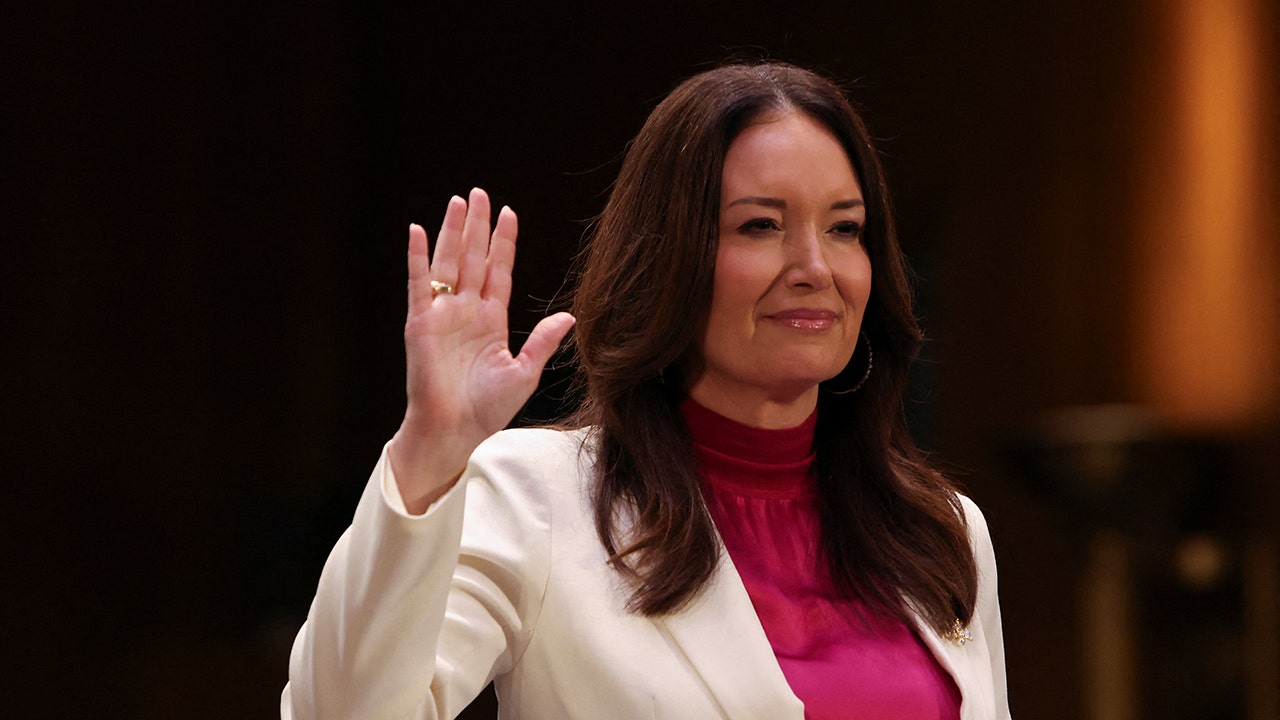World
Government sells 9.5% of state-controlled Telecom Egypt
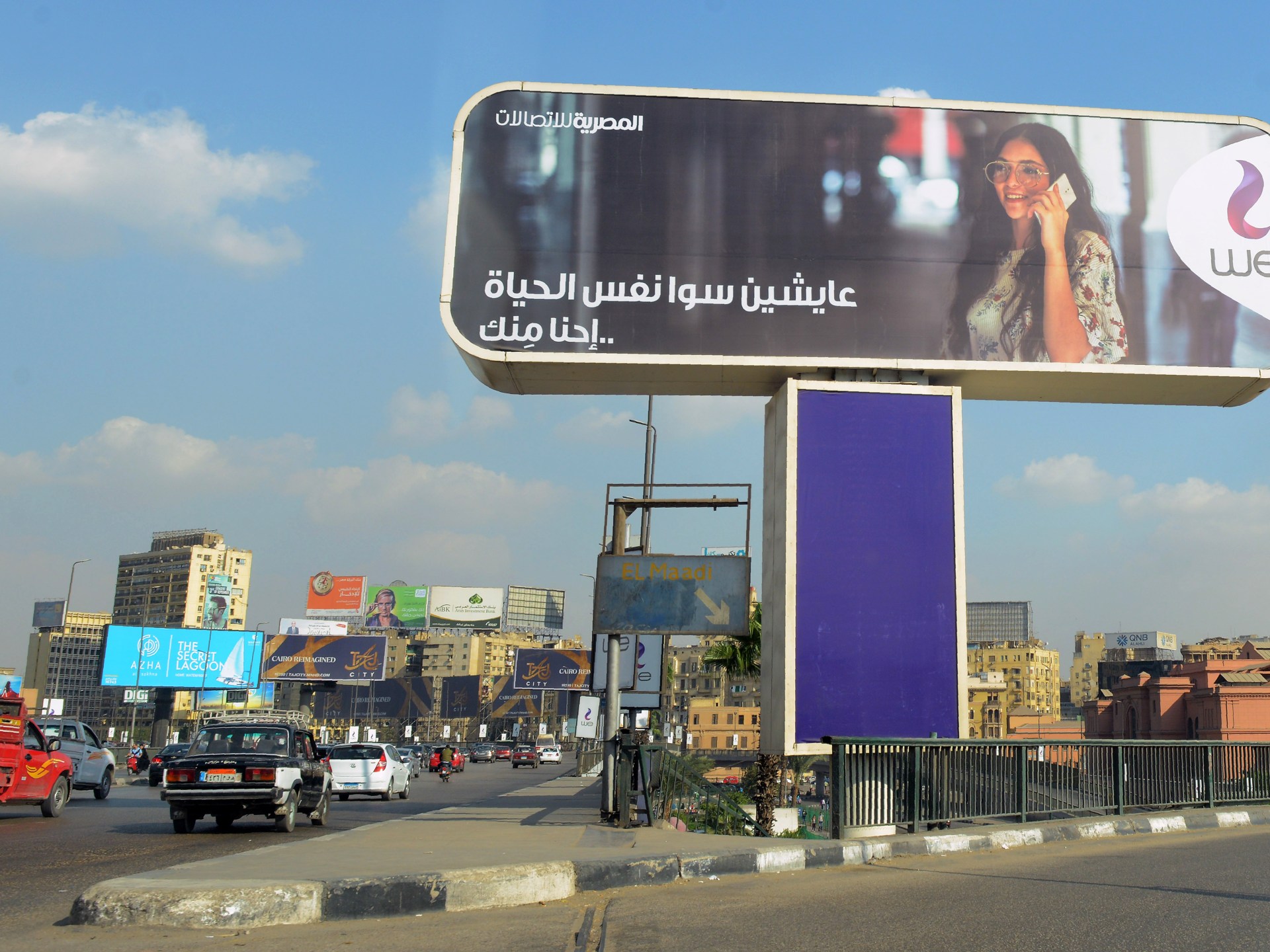
The sale comes as part of the country’s privatisation drive as it must meet a series of foreign debt obligations.
The Egyptian finance ministry has announced the selling of a 9.5 percent stake in state-controlled Telecom Egypt for 3.75 billion Egyptian pounds ($122.4m) in a move aimed at pushing forward the government’s privatisation programme.
The ministry said on Sunday that 162.2 million shares were sold at 23.11 Egyptian pounds ($0.75) each in a subscription that was 3.11 times oversubscribed. Another 0.5 percent of the shares are now being offered to Telecom Egypt employees until May 25.
The two-part sale will reduce the government’s stake in Telecom Egypt to 70 percent from the previous 80 percent, with the other 20 percent floating on the Egyptian Exchange. Two local investment banks, CI Capital and Ahly Pharos, were managing the sale, according to market sources.
The ministry statement did not say what portion of the shares were sold to local buyers as opposed to non-Egyptians. Egypt has been looking to raise foreign currency through its asset sales.
Al Mal newspaper said on Thursday that Moon Capital, based in New York City, was among the bidders.
In February, Prime Minister Mostafa Madbouly disclosed a list of more than 30 state-owned companies to sell to investors within the year, state-run Ahram media reported, adding that these include the National Company for Producing and Bottling Water (Safi) and Wataniya Petroleum Company.
Madbouly promised on April 29 to press ahead with the sales programme and sell assets worth $2bn by the end of June. Telecom Egypt is the second sale of state assets since then.
The sale comes as Egypt desperately needs privatisation proceeds to meet a series of foreign debt obligations over the coming few months.
Sunday’s announcement comes after Egypt promised the International Monetary Fund (IMF) it would roll back the state’s involvement in the economy and allow private companies a much greater role as part of a $3bn financial support package signed in December. It also agreed to move to a flexible exchange rate and slow down public investment in national projects.
The package covers a period of 46 months and will give the Egyptian government immediate access to about $347m to help the debt-ridden nation bolster its balance of payments and budget.
The IMF stipulation that Egypt slow down public investments and privatise state assets came after the state poured billions of dollars into massive construction projects, such as the New Administrative Capital and New Alamein City, and into weapon purchases from countries like Germany and Italy. Meanwhile, Egypt’s external debt has quadrupled in the past decade.
Egypt’s economy has been hit hard by higher oil and food prices following the coronavirus pandemic and the war in Ukraine, with the Egyptian pound weakening by more than 13 percent to a new low above 32 to the United States dollar in January this year compared to March 2022.
About a third of Egypt’s 104 million people live in poverty, according to government figures, and many Egyptians depend on the government to keep basic goods affordable through state subsidies and other similar schemes.

World
Trump FBI pick Kash Patel clears Senate panel, headed for confirmation vote

World
Russia claims Trump, Putin talk brought world from 'brink of Apocalypse,' EU warns of 'dirty tricks'
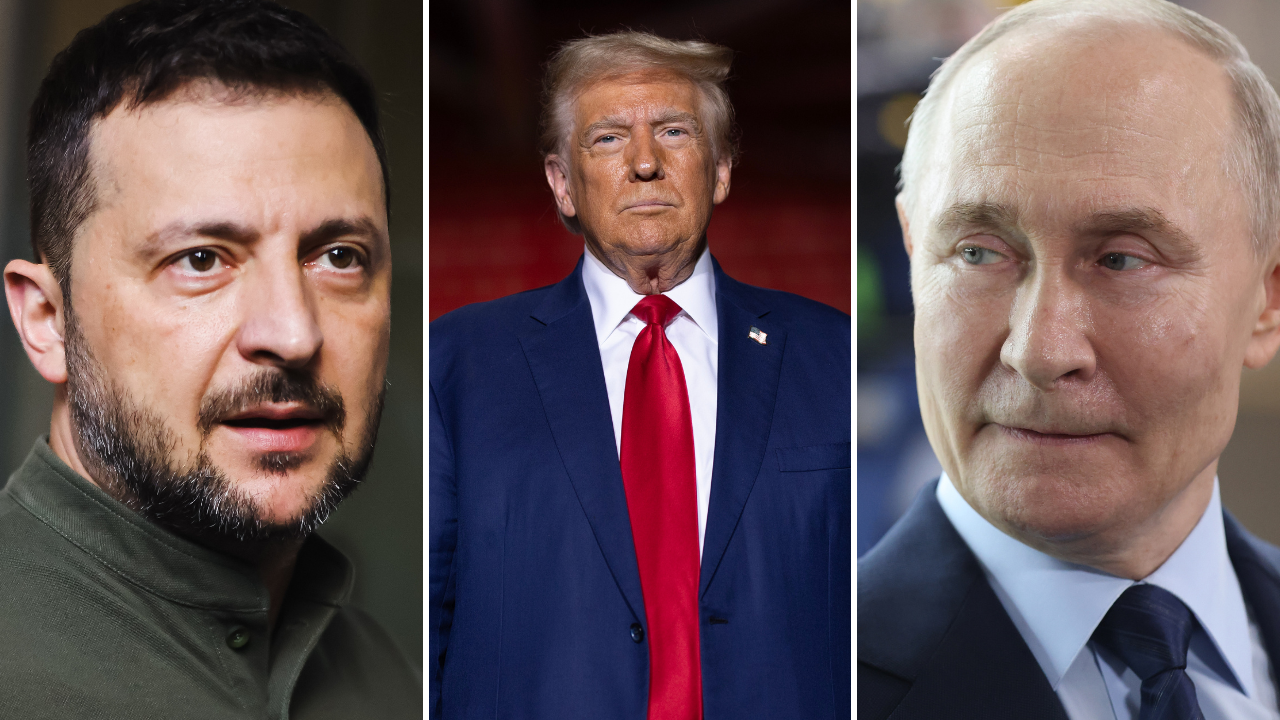
Russia’s deputy chairman of the Security Council, Dmitry Medvedev, on Thursday claimed that the recent discussion held between President Donald Trump and Russian President Vladimir Putin brought the world back from the “brink of the Apocalypse.”
“It just so happened at some point that the U.S. appointed itself the country-in-chief on our planet with the exclusive right to wage a hybrid war against our people, to mete out justice and grant pardons. It was a grave mistake, which nearly wiped humanity off the face of the earth,” he said, without mentioning that the West united behind Ukraine against Russia after Moscow launched the biggest invasion of a European nation since World War II.
“This is a lesson that must be learned by the arrogant American elites and the so-called deep state,” he continued. “The quicker our adversaries realize this, the better.
“If they don’t… the Doomsday Clock will keep on ticking towards midnight,” he added, threatening nuclear escalation.
President Donald Trump speaks to reporters from the White House after he spoke with Russian President Vladimir Putin on ending the war with Ukraine on Feb. 12, 2025. (AP/Alex Brandon)
UKRAINE ADVOCATES TEAR INTO HEGSETH FOR GIVING RUSSIA ‘CONCESSIONS’ AT START OF PEACE TALKS: ‘BIGGEST GIFT’
Trump once again prompted geopolitical shock waves following his Wednesday call with Putin when he said in a Truth Social post that peace talks will start “immediately” – comments that came just hours after U.S. Defense Secretary Pete Hegseth said it was unrealistic that Ukraine would be allowed to join the NATO alliance.
European leaders were quick to react with concern to comments from both Washington and Moscow, including EU foreign policy chief Kaja Kallas, who told Fox News Digital, “It’s not wise to surrender Russia’s key demands before the negotiations even start.”
“Any peace agreement requires the full involvement of both the Europeans and the Ukrainians to succeed,” she continued. “Quick fixes are just dirty deals.
“Putin only responds to strength. Ukraine is resisting Russia’s invasion, and they have our full support. A bad deal for Ukraine is a bad deal for America and will embolden China,” Kallas said.
Kallas’ comments came after she met with NATO defense ministers, who similarly came out in support of Ukraine and issued warnings to Washington.
Lithuania Defense Minister Dovile Sakaliene said NATO leaders are facing “difficult discussions” with “two obvious choices.”
“Whether we decide to fall under the illusion that Mr. Trump and Mr. Putin are going to find a solution for all of us – and that would be a deadly trap,” she said. “Or we will, as Europe, embrace our own economic, financial and military capacity. And we will be the ones who will be deciding what will happen in Europe and in Ukraine with the United States.”

Swedish Prime Minister Ulf Kristersson, Italian Prime Minister Giorgia Meloni, Finnish Prime Minister Petteri Orpo, EU foreign policy chief Kaja Kallas and Prime Minister Kyriakos Mitsotakis of Greece attend a press conference in Saariselka, Finnish Lapland, Dec. 22, 2024. (Lehtikuva/Antti Aimo-Koivisto via Reuters)
In addition, Estonia Defense Minister Hanno Pevkur warned, “We have to understand that there will be no peace without Ukraine.
“It cannot be so that someone will come and say when to talk. It has to be Ukraine,” he added.
Russian presidential spokesperson Dmitry Peskov on Thursday said Putin would be “pleased” to welcome international leaders, including Trump, to Moscow in May.
European leaders reacted with apparent concern to Trump’s and the Kremlin’s comments and said there can be no peace agreement without direct EU and Ukrainian involvement.
SOME CRITICS WORRIED TRUMP WOULD HAVE UKRAINE GIVE UP TOO MUCH FOR PEACE AGREEMENT WITH RUSSIA
Similarly, U.K. Prime Minister Keir Starmer said, “There can’t be any negotiations about Ukraine without Ukraine being at the heart of it.”
Seven European leaders from the U.K., France, Germany, Poland, Italy, Spain and the EU released a joint statement on Wednesday and insisted that they should be part of any negotiations on Ukraine’s future.
“Our shared objectives should be to put Ukraine in a position of strength,” the statement said. “Ukraine and Europe must be part of any negotiations.”
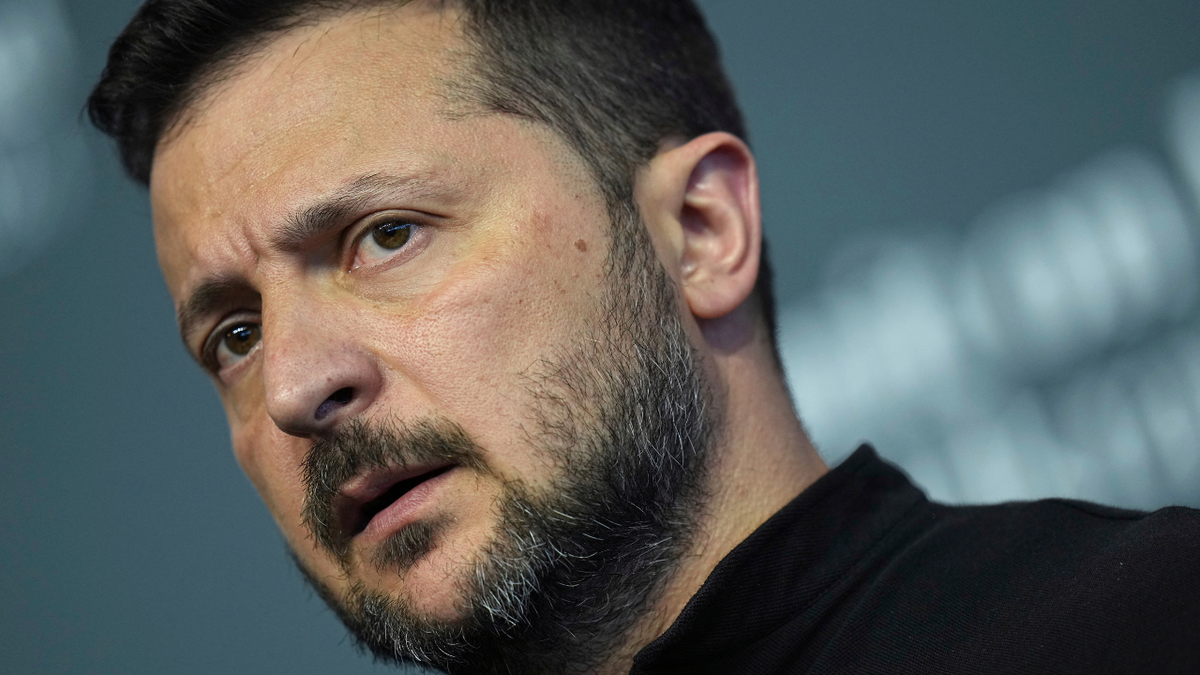
President Volodymyr Zelenskyy confirmed he spoke with President Trump on Feb. 13, 2025, about ending the war with Russia. (AP Photo/Laurent Cipriani)
Ukrainian President Volodymyr Zelenskyy earlier this week said he would be willing to exchange the land Ukraine has seized in Russia for the land occupied by Moscow’s troops in its eastern regions.
The Ukrainian president said he also spoke with Trump following his call with Putin on Wednesday about a “lasting, reliable peace.”
World
Hamas says three captives to be released amid ceasefire deal collapse fears

Hamas says it will release captives according to timeline set out in truce after fears agreement would not hold following Israel’s violations.
Hamas says it is committed to the release of captives held in Gaza according to a timeline set out in a ceasefire, days after fears arose that the truce would not hold following Israel’s violation of the agreement.
In a statement released on Thursday, Hamas said it “confirms continuation in implementing the agreement in accordance with what was signed, including the exchange of prisoners according to the specified timetable”.
Hamas spokesperson Abdul Latif al-Qanoua also confirmed to the Anadolu news agency that the group will release captives on Saturday if Israel adheres to the terms of the ceasefire.
“The [Israeli] occupation has violated the agreement multiple times, whether by preventing the return of displaced people or blocking the entry of humanitarian aid,” he said. “If Israel does not adhere to the terms of the agreement, the prisoner exchange process will not take place.”
A Palestinian source quoted by AFP news agency said on Thursday that mediators had obtained from Israel a “promise … to put in place a humanitarian protocol starting from this morning” that would allow construction equipment and temporary housing into the devastated territory.
The Hamas statement added that talks being held this week in Cairo aimed at overcoming an impasse in implementing the deal had been “positive”.
Later on Thursday, Israel said Hamas must release three living captives on Saturday or Israel will return to war.
This week, the agreement with Israel has come under severe strain.
Hamas warned it would delay the next release of captives scheduled for Saturday due to Israel violating the truce by shooting Palestinians in Gaza and not allowing the agreed-upon number of tents, shelters and other vital aid to enter the besieged enclave.
Israel responded by saying that if Hamas failed to free captives according to the schedule, it would resume its war.
Since the ceasefire went into effect on January 19, Israeli forces have killed at least 92 Palestinians and wounded more than 800, according to the Palestinian Ministry of Health.
A Hamas delegation arrived in Cairo on Wednesday to discuss the ceasefire with mediators Egypt and Qatar.
Egyptian state-linked media said heavy equipment and trucks carrying mobile homes were ready to enter Gaza from Egypt on Thursday. The AFP news agency shared images showing a row of bulldozers on the Egyptian side of the border.
However, Israel later said they would not be allowed to enter through the crossing.
“There is no entry of caravans or heavy equipment into the Gaza Strip, and there is no coordination for this,” Omer Dostri, a spokesperson for Prime Minister Benjamin Netanyahu, wrote on X, adding: “No goods are allowed to enter the Gaza Strip through the Rafah crossing.”
Hamas has previously accused Israel of holding up the delivery of heavy machinery needed to clear the vast amounts of rubble across the enclave.
United States President Donald Trump had warned this week that “hell” would break loose if Hamas failed to release “all” the remaining captives by noon (10:00 GMT) on Saturday.
If fighting resumes, Israeli Defence Minister Israel Katz said: “The new Gaza war … will not end without the defeat of Hamas and the release of all the hostages.”
“It will also allow the realisation of US President Trump’s vision for Gaza,” he added.
Trump, whose return to the White House has emboldened the Israeli far right, caused a global outcry over his proposal for the US to take over the Gaza Strip and move its 2.3 million residents to Egypt or Jordan.
The Gaza truce, currently in its first phase, has seen Israeli captives released in small groups in exchange for Palestinians in Israeli custody.
-

 Politics1 week ago
Politics1 week agoTulsi Gabbard confirmation fate to be tested with key committee vote
-

 Technology1 week ago
Technology1 week agoTrump’s first 100 days: all the news affecting the tech industry
-

 News1 week ago
News1 week ago'Beyond betrayal.' Venezuelans in Florida are angry at Trump immigration policy
-
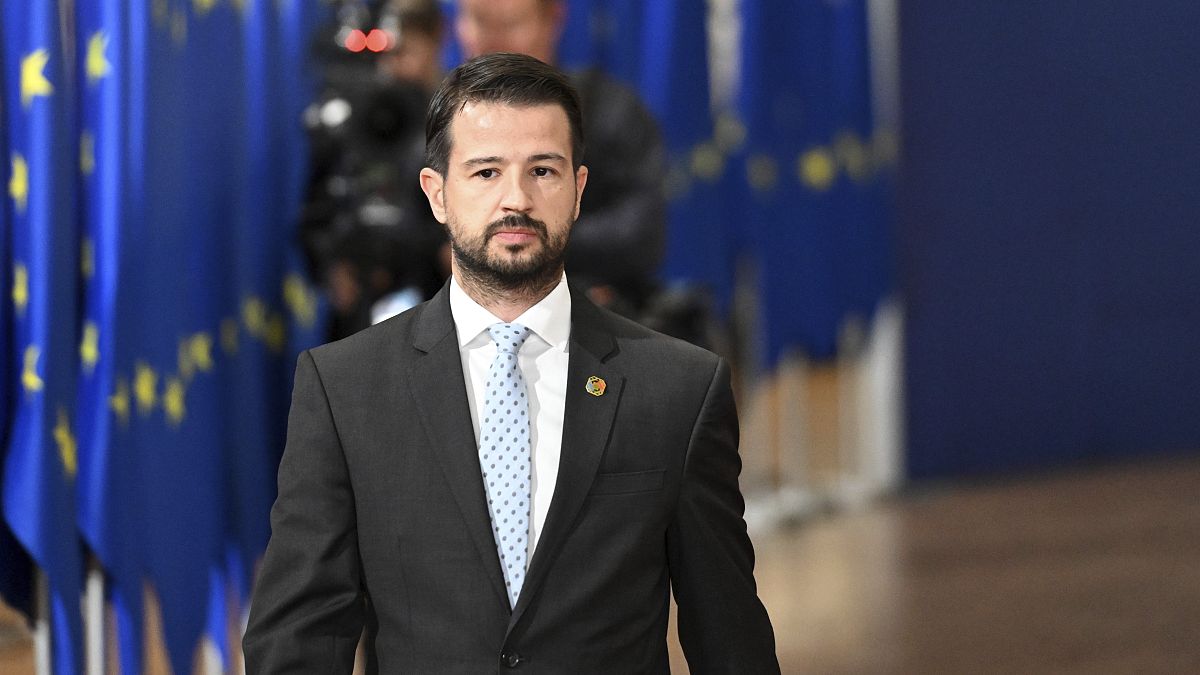
 World1 week ago
World1 week agoMontenegro pursues values-driven EU enlargement process
-

 World1 week ago
World1 week agoTrump says US will ‘own’ Gaza in redevelopment plan
-

 News1 week ago
News1 week agoCongressional Democrats to Trump: Changes can't be done in secrecy
-

 Politics1 week ago
Politics1 week agoCIA offering buyouts to its entire workforce: report
-

 Education1 week ago
Education1 week agoTrump’s Orders Could Drain Millions From Universities, but Few Protest Openly












